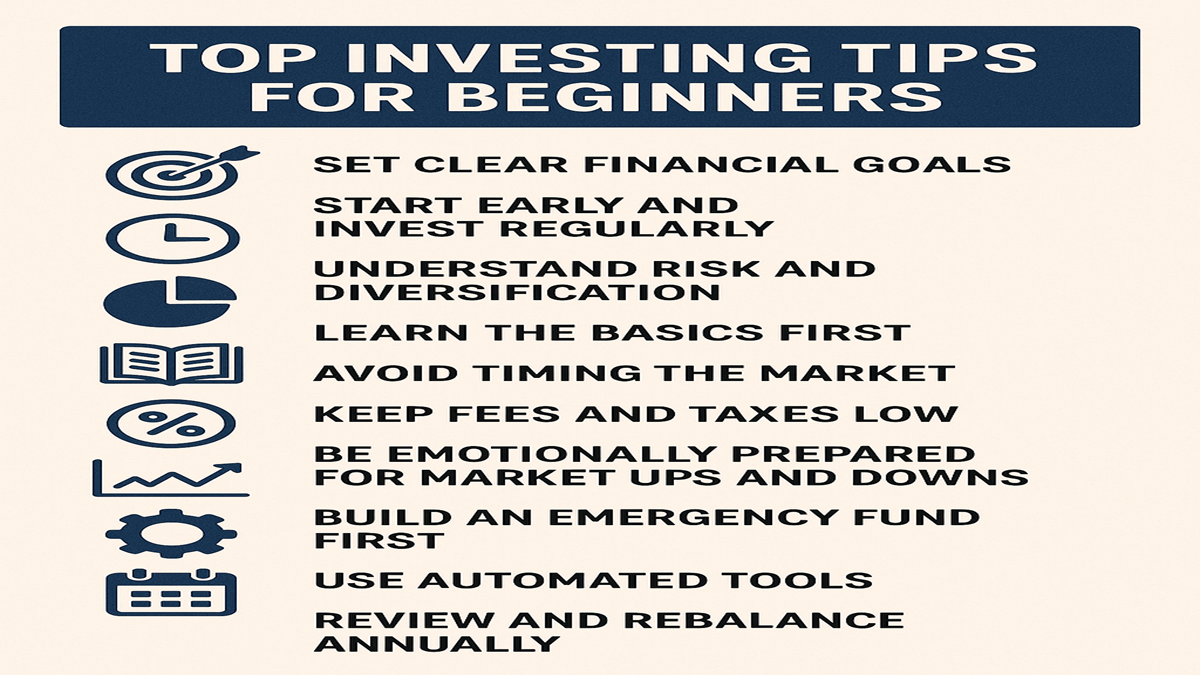
Top investing tips for beginners to help you build a strong foundation and avoid common pitfalls:
1. Set Clear Financial Goals
- Short-term vs. long-term: Know whether you’re investing for retirement, a home, education, or another goal.
- Match your investment choices to your time horizon and risk tolerance.
2. Start Early and Invest Regularly
- Time is your biggest ally: The power of compound interest works best over the long term.
- Use dollar-cost averaging (investing a fixed amount regularly) to reduce the impact of market volatility.
3. Understand Risk and Diversification
- Don’t put all your eggs in one basket. Spread your investments across asset classes (stocks, bonds, real estate, etc.).
- Consider index funds or ETFs for instant diversification.
4. Learn the Basics First
- Understand key concepts: stocks, bonds, mutual funds, ETFs, dividends, expense ratios, etc.
- Read reputable books, blogs, and watch videos (like “The Little Book of Common Sense Investing” by John Bogle).
5. Avoid Timing the Market
- Even professionals struggle to do this consistently.
- A buy-and-hold strategy often outperforms short-term trading.
6. Keep Fees and Taxes Low
- Choose low-cost index funds or ETFs over high-fee mutual funds.
- Consider tax-advantaged accounts like IRAs or 401(k)s if available.
7. Be Emotionally Prepared for Market Ups and Downs
- Markets fluctuate—don’t panic sell during downturns.
- Stick to your long-term plan unless your financial situation or goals change.
8. Build an Emergency Fund First
- Before investing, have 3–6 months of expenses in a liquid, safe account (like a high-yield savings account).
9. Use Automated Tools
- Consider robo-advisors (like Betterment or Wealthfront) for hands-off investing.
- Set up automatic transfers to make saving and investing easier.
10. Review and Rebalance Annually
- Over time, your portfolio can drift from your target allocation.
- Rebalancing helps maintain your desired risk level.






